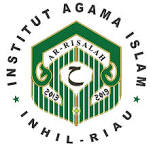Integrating Technology in Early Childhood Education: Opportunities and Challenges in Thailand
DOI:
https://doi.org/10.61104/qd.v1i1.374Keywords:
Early childhood education, technology integration, thailand, digital literacyAbstract
Early childhood education (ECE) plays a critical role in shaping children’s cognitive, social, and emotional development in the digital era. This study aims to analyze the opportunities and challenges of integrating technology into early childhood education in Thailand by examining national policies, teacher preparedness, and community engagement. Employing a qualitative descriptive approach, this research applies a systematic literature review of policy frameworks, UNESCO reports, and high-impact scholarly articles published within the last decade (2015–2025). The findings reveal that technology integration provides significant opportunities to enhance learning quality, personalize instruction, and expand access to education. However, challenges persist, including infrastructure disparities, limited digital literacy among teachers, insufficient culturally relevant content, and low parental involvement. The study highlights the need for collaborative strategies among policymakers, educators, parents, and technology developers to build an inclusive, sustainable, and child-centered learning ecosystem.
References
Boonmoh, A. (2024). Challenges of ICT teachers in integrating digital literacy post-COVID-19 curriculum revisions in Thailand’s English teacher education programs. International Journal of English Language & Literature Studies, 12(3), 209–217. https://journals.aiac.org.au/index.php/IJELS/article/view/8183
Cao, S. (2023). A scoping review of digital well-being in early childhood. International Journal of Environmental Research and Public Health, 20(2), 1–15. https://doi.org/10.3390/ijerph20021234
Chaiyasoonthorn, W., & Suksa-ngiam, W. (2021). Digital literacy and technology adoption among early childhood educators in Thailand. Education and Information Technologies, 26(7), 8331–8350. https://doi.org/10.1007/s10639-021-10725-4
Gligorea, I. (2023). Adaptive learning using artificial intelligence in e-learning. Education Sciences, 13(12), Article 1216. https://doi.org/10.3390/educsci13121216
Kim, S., & Lee, H. (2022). Parental involvement in digital learning: Effects on children’s socio-emotional and cognitive development. Early Childhood Research Quarterly, 61, 239–252. https://doi.org/10.1016/j.ecresq.2022.06.008
Lee, J., & Park, S. (2023). The role of EdTech startups in enhancing early childhood education: A Southeast Asian perspective. Computers & Education, 192, 104648. https://doi.org/10.1016/j.compedu.2023.104648
Li, H., & Chen, L. (2022). Designing culturally relevant digital learning materials for multilingual early learners. British Journal of Educational Technology, 53(5), 1234–1250. https://doi.org/10.1111/bjet.13182
Ng, C. K., & Lim, K. Y. T. (2022). Expanding access to early childhood education through mobile learning technologies in Southeast Asia. International Journal of Child-Computer Interaction, 32, 100484. https://doi.org/10.1016/j.ijcci.2021.100484
Nguyen, T. T., & Hoang, A. (2023). Addressing funding gaps in early childhood technology integration: A Southeast Asian framework. International Review of Education, 69(3), 399–419. https://doi.org/10.1007/s11159-023-09999-1
Ozturk, E. (2025). Artificial intelligence in early childhood STEM education: Pedagogical, ethical, and political dimensions. Early Childhood Education Journal, 53(1), 75–92. https://doi.org/10.1007/s10643-025-01987-8
Pongsophon, P., & Jarupathirun, S. (2022). Enhancing early childhood engagement through digital tools: A study of Thai classrooms. Asia-Pacific Journal of Education, 42(6), 947–965. https://doi.org/10.1080/02188791.2022.2037015
Su, J., Ng, D. T. K., Yang, W., & Li, H. (2022). Global trends in research on early childhood education during the COVID-19 pandemic: A bibliometric analysis. Education Sciences, 12(5), 331. https://doi.org/10.3390/educsci12050331
UNESCO. (2023). Digital learning for all: Promoting inclusive access to early childhood education in Southeast Asia. United Nations Educational, Scientific and Cultural Organization. https://unesdoc.unesco.org
Zhang, W., Wang, Y., & Zhao, H. (2023). Adaptive learning technologies and personalized education in early childhood settings. Journal of Educational Technology & Society, 26(2), 15–28. https://doi.org/10.30191/jets.2023.104215
Downloads
Published
How to Cite
Issue
Section
License
Copyright (c) 2025 Miss Fatihah Saman

This work is licensed under a Creative Commons Attribution-ShareAlike 4.0 International License.








